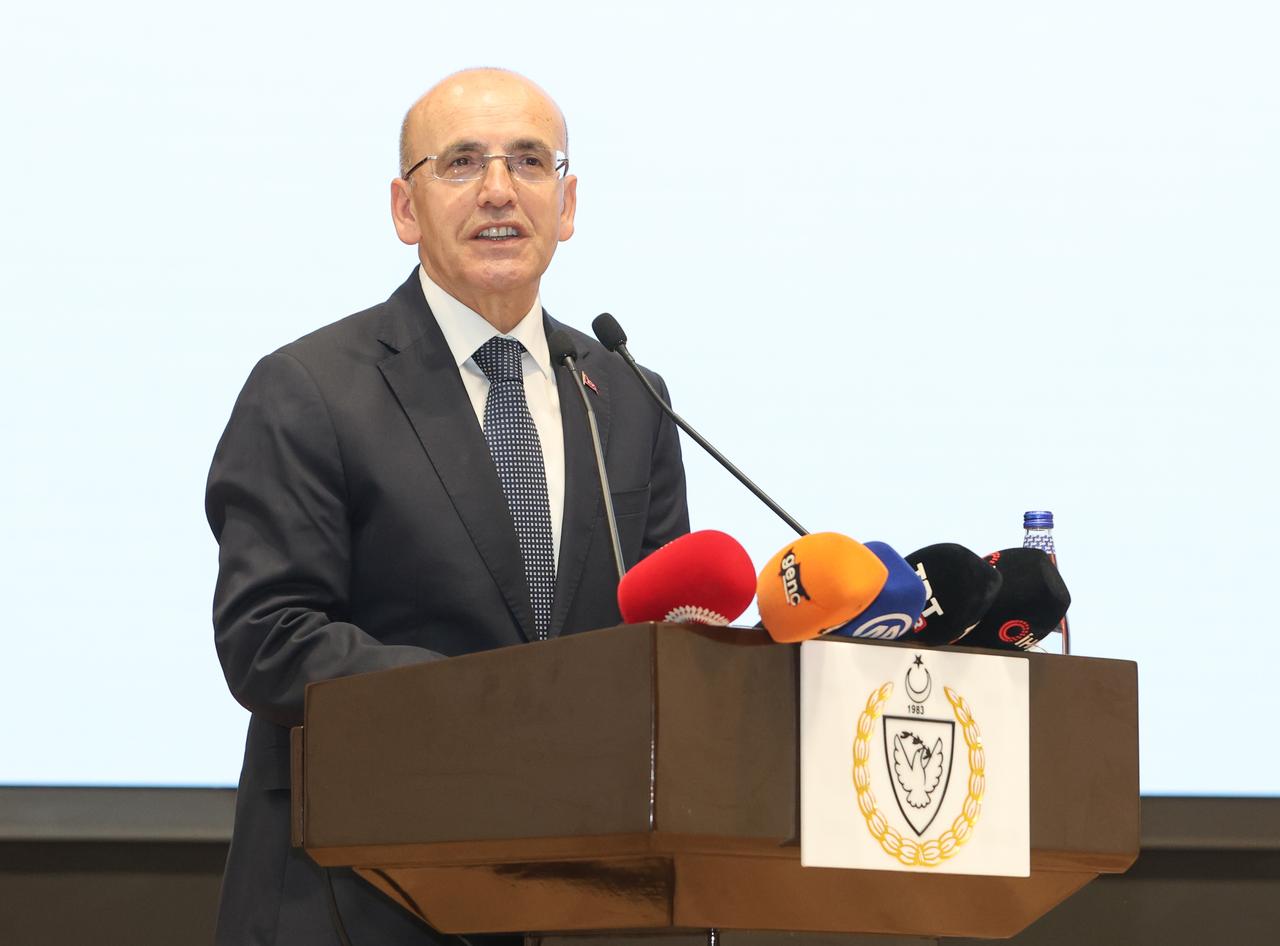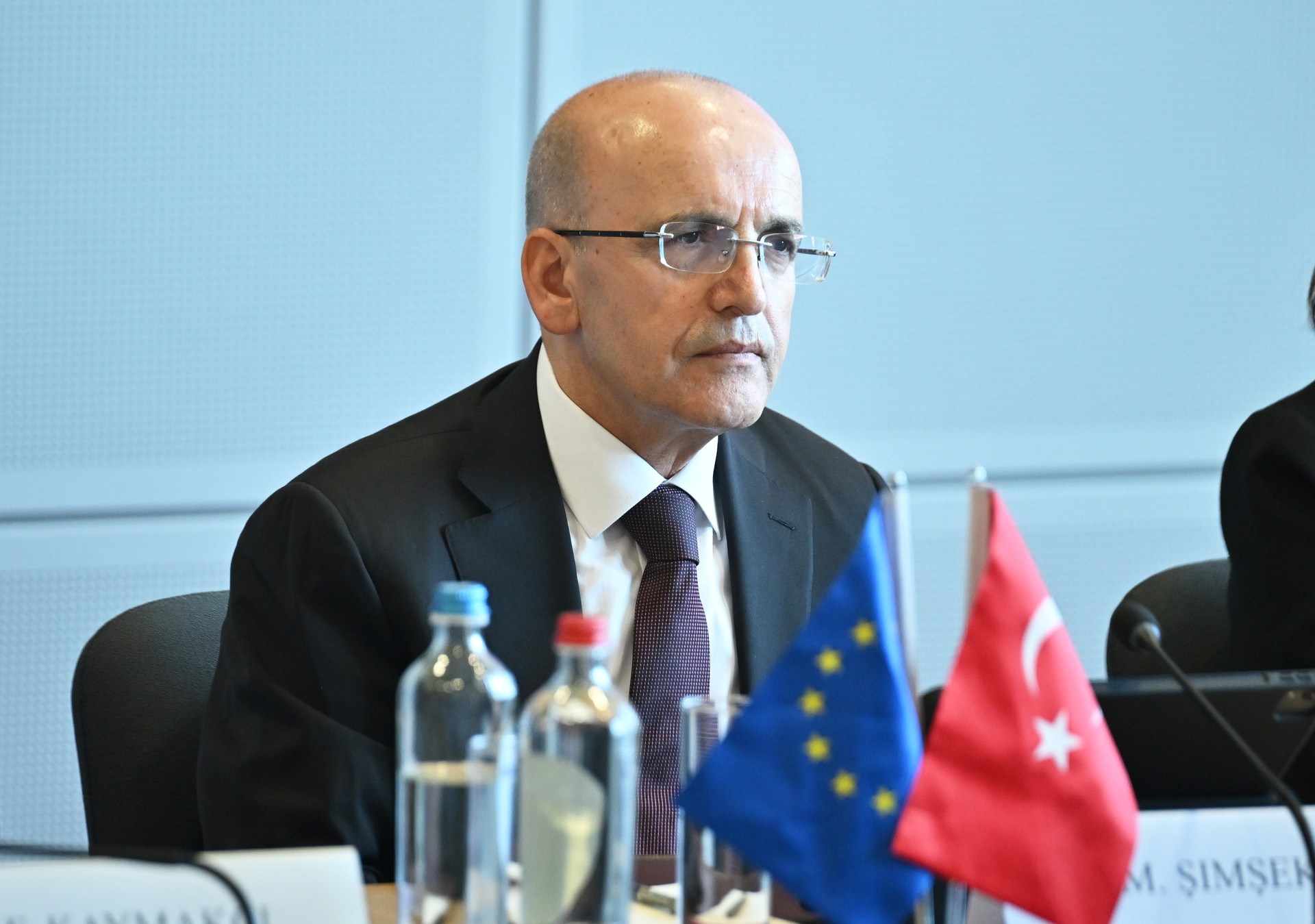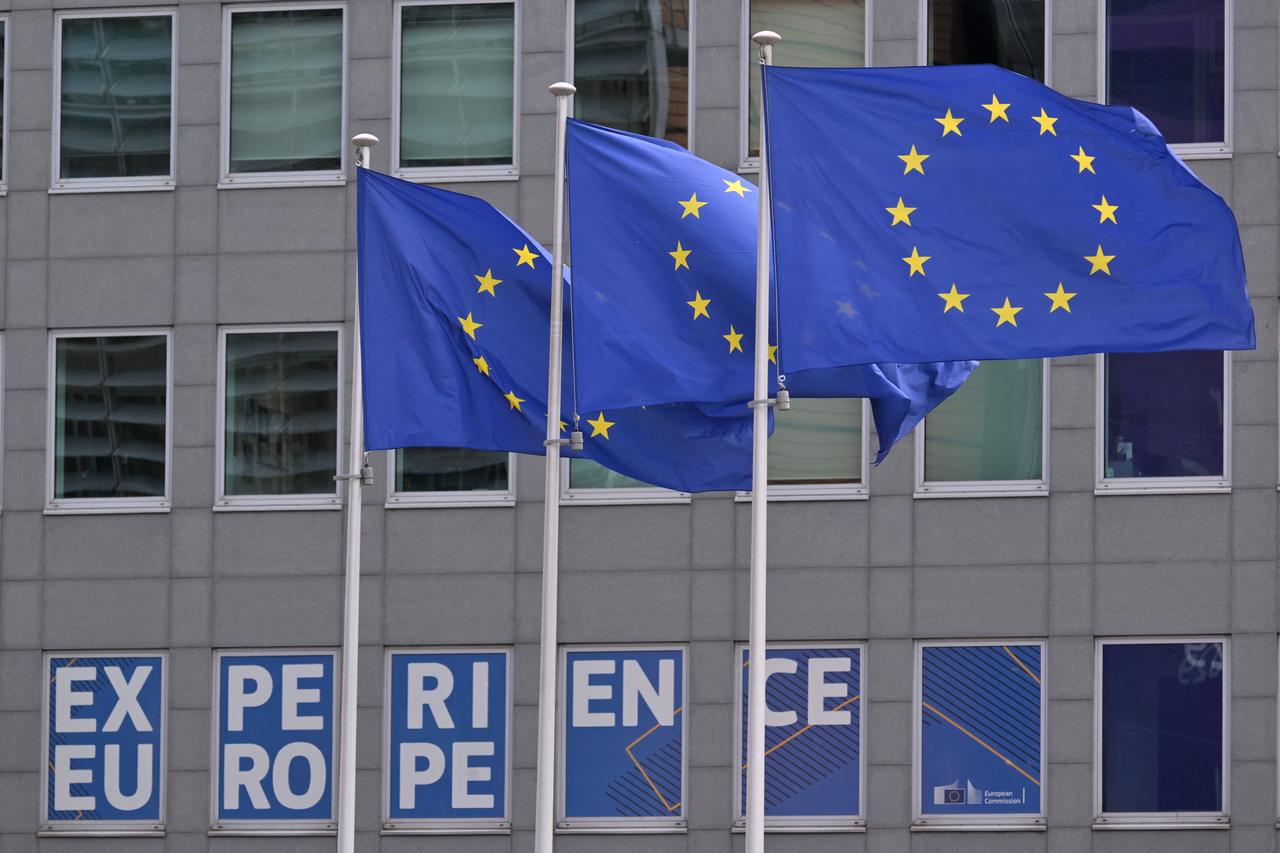
Turkish Treasury and Finance Minister Mehmet Simsek called for updating the European Union's Customs Union Agreement, stating that Türkiye-EU trade volume could increase from the current €200 billion ($226.2B) range to €400 billion ($452.4B), benefiting both sides significantly.
Speaking at a conference themed "Developments in Türkiye and World Economy and Future Vision" organized by the Turkish Republic of Northern Cyprus (TRNC) Presidency, Simsek emphasized Türkiye's advantageous position despite global challenges.

During his address at the TRNC conference, Minister Simsek highlighted the potential economic benefits of modernizing the EU-Türkiye Customs Union Agreement.
"I believe that EU countries will need Türkiye more in the future," Simsek said, explaining that updating the Customs Union could bring significant gains for both parties.
The minister noted that such an update would double current trade volumes between Türkiye and the European Union.
Simsek also underlined the U.S. administration's inclination toward economic cooperation and integration with Türkiye, stating this could develop in multiple areas as well as through cooperation with third countries.
For future priorities, the minister expressed sensitivity toward digital transformation and climate change issues, emphasizing that Türkiye and TRNC could collaborate in these areas.

The finance minister reaffirmed Türkiye's commitment to its economic program, stating the country has established foundations for sustainable high growth while pointing to increases in both gross and net foreign exchange reserves.
"We will continue to implement the economic program with determination. Of course, we will take measures for problems that arise along the way. Thanks to the program, Türkiye has achieved significant gains," Simsek said.
Adding that Türkiye's risk premium and currency volatility have declined, with foreign exchange reserves continuously increasing.
Minister Simsek emphasized that inflation reduction will continue through their implemented program.
"Inflation decline will continue this year as well. Core goods inflation has dropped to 20%, while inflation for all goods has fallen to 31%. Headline inflation stands at 38%, and inflation in the service sector, which was high, is declining," Simsek stated.
The minister predicted that inflation will continue to fall in 2025, enabling Türkiye to make more investments and see ahead more clearly.
Simsek indicated that domestic demand slowdown, falling oil prices, increased domestic oil and natural gas production, and green transformation could positively affect the current account balance by narrowing the foreign trade deficit.
He assessed that the impact of internal and external fluctuations on their economic program remains limited.
"We believe we are managing this market turbulence well. The effect on inflation expectations is at the level of 1-2 points, the lira's depreciation was very minimal, and since demand is not very strong, the pass-through from lira depreciation to inflation has weakened," Simsek explained.